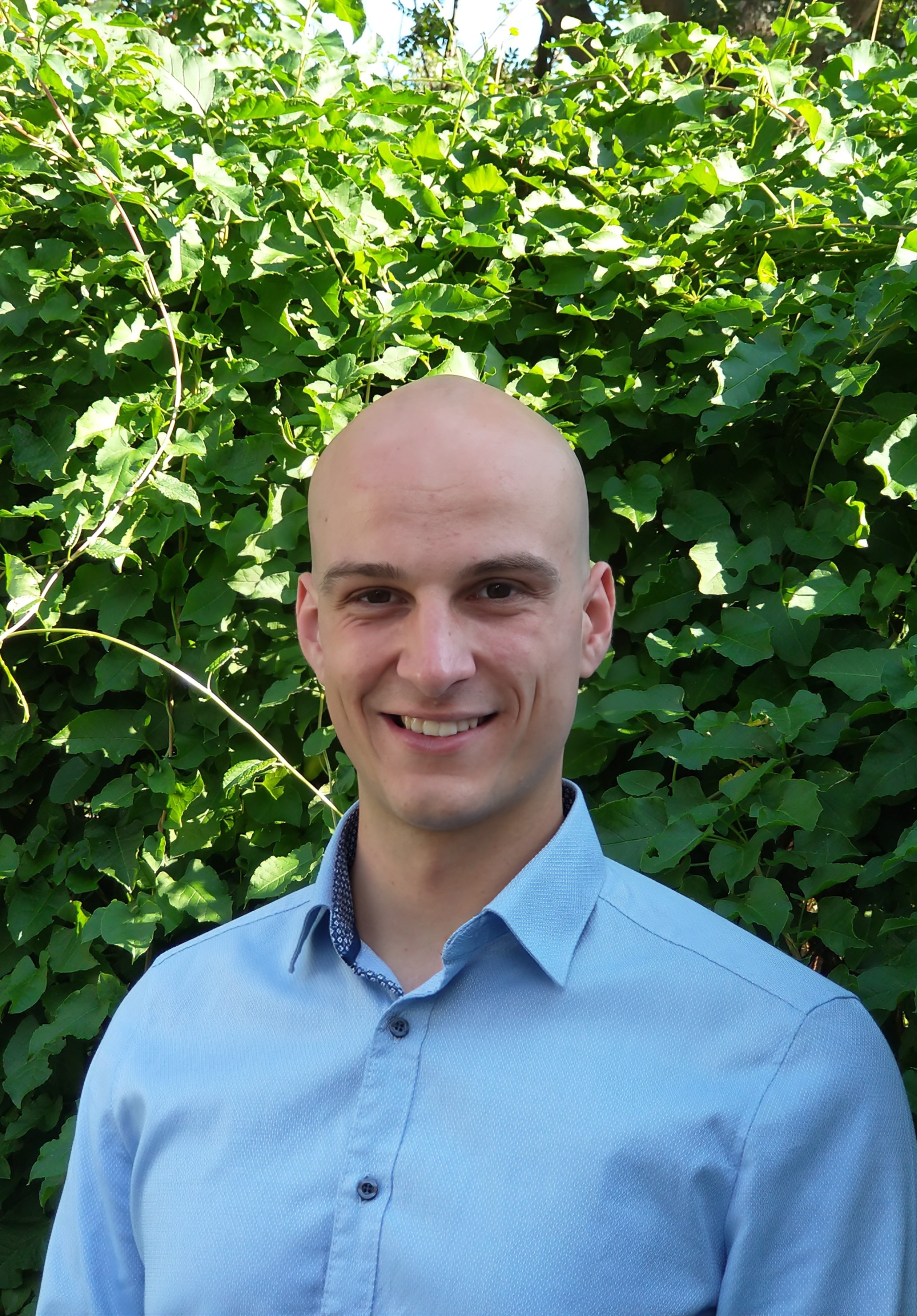Best Bioengineering MSc Graduate of the Year: Thomas Michalica!
Since 2020, Delft Bioengineering Institute (BEI) organizes a cross-campus competition for MSc students who performed remarkably well at their graduation projects in bioengineering. This year, eleven very impressive theses were submitted. After a strenuous review and discussion, the jury agreed that Thomas Michalica (MSc Mechanical Engineering), Linde Spoelstra (MSc Materials Science & Engineering) and Thomas Mooijman (MSc Mechanical Engineering) have delivered the most innovative, interdisciplinary bioengineering projects of 2023. On top of eternal fame, they will receive personal cash prizes of €1000, €500 and €250.
# | MSc Graduate | Thesis title | MSc | Supervisor(s) |
1 | Thomas Michalica | Two-photon polymerization-based 3D -multi-electrode arrays for electrical monitoring of neuronal cells | Mechanical Engineering | Angelo Accardo (3mE) & Massimo Mastrangeli (EWI) |
2 | Linde Spoelstra | The lignocellulose binding phenomena and interlaminar fracture toughness of living Ganoderma lucidum | Materials Science & Engineering | Kunal Masania (LR) & Miguel Bessa (3mE) |
3 | Thomas Mooijman | Bio-Inspired Ice Adhesion Robot FLICK for Exploring Icy Moons | Mechanical Engineering | Stéphanie Cazaux (LR) & Jovana Jovanova (3mE) |
Thomas Michalica
Thomas joined TU Delft's Faculties of 3mE and EWI to work on an interdisciplinary MSc project funded by a Delft Bioengineering Institute grant: Two-photon polymerization-based 3D-multi-electrode arrays for electrical monitoring of neuronal cells. He pioneered hybrid metal/polymer 3D multi-electrode arrays, a groundbreaking development for the characterization of functional neuronal networks. Demonstrating exceptional leadership, innovative design, and collaboration across three labs (3D multi-scale printing facility at 3mE, Else Kooi Lab at EWI, Kavli Institute at TNW), he earned a cum laude Master's in Mechanical Engineering (9/10), and presented his thesis at hDMT's Brain-on-chip symposium. Shortly after obtaining his degree, he landed a position as Process Technology Engineer at EVG. To his supervisors Angelo Accardo (3mE) and Massimo Mastrangeli (EWI), Thomas represented the ideal student: proactive, open to criticism, self-critical, diligent, accurate and persistent.

Linde Spoelstra
Kunal Masania, who leads the interdisciplinary research group ‘Shaping Matter Lab’ at TU Delft's Faculty of Aerospace Engineering, commends Linde's outstanding work in materials engineering. Focusing on mycelium-based composites, a burgeoning field, Linde's thesis 'The lignocellulose binding phenomena and interlaminar fracture toughness of living Ganoderma lucidum' explored enhancing material applicability by improving the understanding of the mycelium and fibres' interface. Using 3D printing to control fungal growth on wooden substrates, she creatively adapted conventional testing methods for fragile biological specimens. She could well translate the obtained result for both biologists and material engineers, and showed the binding of the fungus to increase with an order of magnitude if nutrients and growth time were adequately chosen. Linde's interdisciplinary efforts contribute significantly to advancing controlled production of living emergent materials
Thomas Mooijman
Thomas (Tom) has produced an outstanding MSc thesis in Mechanical Engineering. His project, funded by Delft Bioengineering Institute, following a successful BioDate of supervisors Stéphanie Cazaux (LR) and Jovana Jovanova (3mE), focused on the development of the Bio-Inspired Ice Adhesion Robot FLICK for Exploring Icy Moons. Demonstrating creativity, Tom explored the potential of utilizing ice adhesion as a locomotion strategy, drawing inspiration from the phenomenon of a 'tongue adhering to an ice pole'. Leveraging this insight, Tom developed a novel ice adhesion gripper to test the strength of the adhesive bond and integrated it into a fully operational robotic prototype. Tom's defence in July earned him a unanimous 9/10, and his work, presented at the European Space Agency (ESA), garnered significant interest from experts in the field.